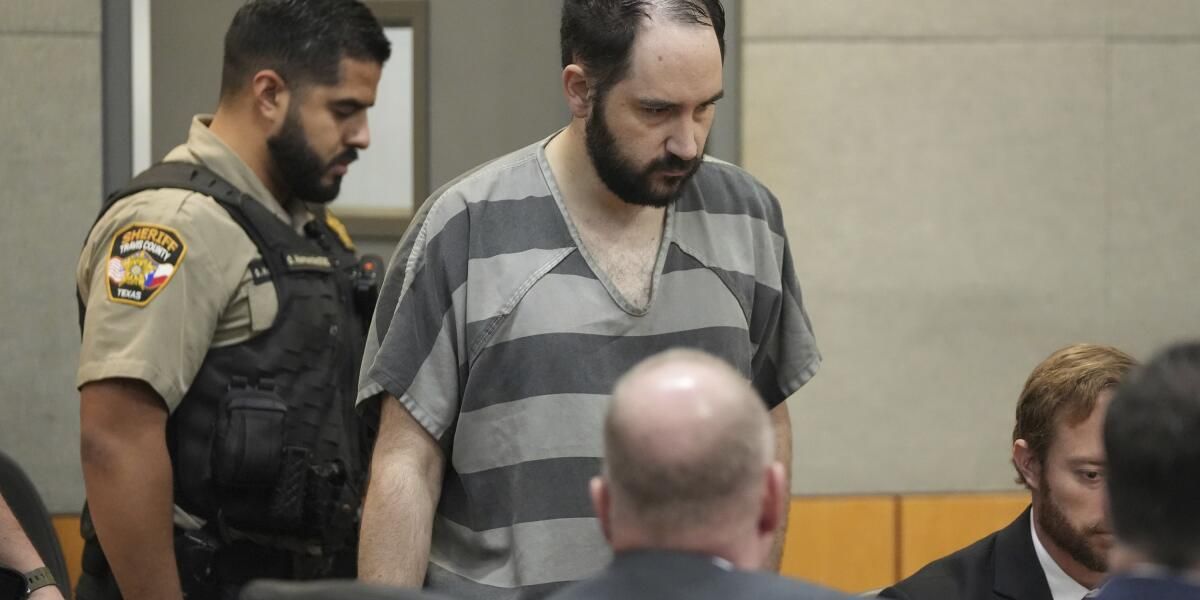Is It a Legal or Political Move? The Texas Governor’s Controversial Pardon in Protester’s Murder Sparks Outcry
AUSTIN, Texas – Republican Texas Governor Greg Abbott strained the boundaries of the executive branch’s limited authority to the farthest to get his desired result in a highly charged legal matter when he fully pardoned a former Army sergeant found guilty of murder in the shooting death of an armed Black Lives Matter demonstrator.
Daniel Perry, who killed Air Force veteran Garrett Foster during a demonstration in Austin in 2020, was pardoned by Abbott this week, satisfying the demands of prominent conservatives who had called for Perry’s release while also infuriating prosecutors and the victim’s family. Abbott’s haste to overturn the conviction alarmed critics because it begged the question of how a governor would attempt to reverse a jury’s decision down the road.
His fiancée Whitney Mitchell, who was with him at the demonstration when he was slain, said, “He has declared that Texans who hold political views that are different from his and different from those in power can be killed in this state with impunity.”
A governor’s ability to pardon anyone is restricted by Texas law. Only with the governor’s endorsement might the Board of Pardons and Paroles be able to carry it out. Over the past ten years, Abbott, a three-term governor, has rarely exercised his pardon power, usually awarding just a few per year for minor infractions.
From the nature of the crime to the politics involved, Perry’s case was very different.
Foster was killed in the midst of the massive protests against racial injustice and police killings that erupted when a white Minneapolis police officer killed a Black man named George Floyd. Conservatives in the state and country demanded an instant pardon for Perry, the off-duty soldier who had claimed self-defense, upon his conviction in 2023.
Abbott answered just as quickly. The governor chastised Perry’s jury even before he was sentenced, and he insisted that the parole board perform a “swift” assessment of the case.
The governor also made it clear what outcome he anticipated. Abbott said on social media, “I look forward to approving (a pardon) as soon as it hits my desk.”
Abbott’s decision remained unchanged even when Perry’s text conversations and social media history were made public a few days later. Perry’s own comments, such as the comparison of Black Lives Matter demonstrations to zoo animals, were used by prosecutors to paint him as a racist who would carry out violent acts in the future.
Trial Judge Clifford Brown stated from the bench that the decision “deserves our honor and it deserves to be respected” after Perry was given a 25-year prison sentence. He made no mention of Abbott’s request for a pardon.
Abbott’s early drive for a pardon, criticism of the jury, and partisan attacks on the elected Democratic district attorney who oversaw the case, according to Geoffrey Corn, chair of criminal law at Texas Tech University Law School, dealt a blow to the public’s faith in the legal system.
Corn stated, “It’s almost on the verge of catastrophic.” “We’re telling people that the verdict can’t be legitimate if someone is tried in a mostly Democratic jurisdiction and you’re a Republican?” And the other way around?
At the time of the incident, Perry, a white man, was stationed at Fort Hood, some 70 miles (110 kilometers) north of Austin. He had just dropped off a ride-share customer when he turned down a street crowded with demonstrators. He worked as a driver. The 28-year-old Caucasian veteran of the Air Force, Foster, was lawfully carrying an AK-47 weapon.
Foster allegedly pointed a weapon at Perry as he was attempting to drive past the throng and Perry responded by firing his pistol. According to witness testimony, Foster did not lift his weapon. Perry could have driven away without shooting, according to the prosecution.
In his pardon statement, Abbott stated that Texas “has one of the strongest ‘Stand Your Ground’ laws of self-defense that cannot be nullified by a jury or a progressive district attorney.”
Nonetheless, David Kwok, the head of the University of Houston Law Center’s Criminal Justice Institute, referred to jury nullification as a crucial idea in justice.
“The jury has the authority to resist the power of the state,” Kwok stated.
Prior to becoming governor, Abbott had a lengthy legal career. Before being appointed to the state Supreme Court, which hears civil disputes, he practiced law and served as a state district judge. After that, he was chosen to serve three terms as the state attorney general.
According to Cal Jillson, a political science professor at Southern Methodist University, Abbott was frequently criticized for being overly cautious and methodical during his years as governor because he relied heavily on his legal and judicial background when making political judgments.
Jillson stated, “Over his ten years as governor, Abbott has changed a great deal.” “He’s turned into a far more political and less judicial person.”











